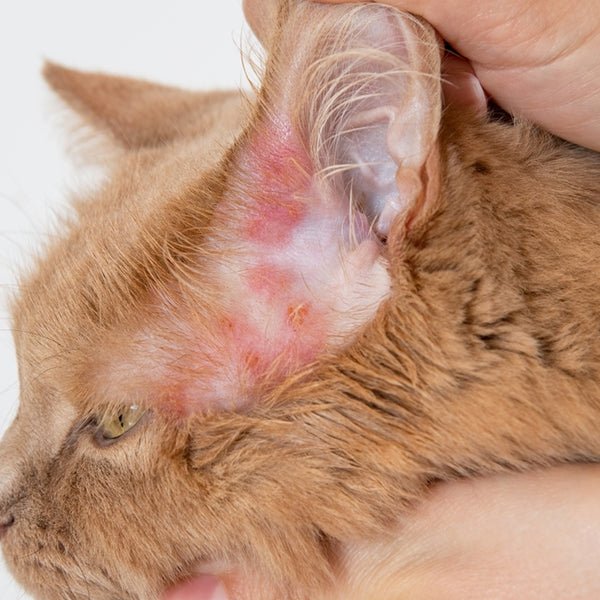Table of Contents
Understanding the common parasites in cats is crucial for any cat owner to ensure their feline friend’s health and well-being. Parasites can cause a range of health issues, from mild discomfort to serious illness. In this article, we explore the top 10 common parasites in cats, how to identify them, and the best methods for treatment and prevention.

Fleas: The Most Common Parasites in Cats
Fleas are one of the most common parasites in cats. They can cause itching, skin infections, and in severe cases, anemia. Fleas are small, brown, wingless insects that feed on your cat’s blood. Regular grooming and flea control treatments are essential for prevention. Learn more about flea prevention and treatment at ASPCA.
Ticks: Dangerous Blood-Sucking Parasites in Cats
Ticks are another common parasite in cats. They attach themselves to the skin and feed on blood, potentially transmitting diseases like Lyme disease and Ehrlichiosis. Regular tick checks and using tick preventatives can help protect your cat. For more information, visit CDC Pets.
Ear Mites: Common Parasites in Outdoor Cats
Ear mites are tiny parasites that live in the ear canal of cats, causing intense itching and discomfort. Symptoms include head shaking, scratching at the ears, and dark discharge. Treatment involves cleaning the ears and using medicated drops. For detailed treatment options, check out PetMD.
Roundworms: Widespread Internal Parasites in Cats
Roundworms are one of the most common internal parasites in cats. They live in the intestines and can cause vomiting, diarrhea, and weight loss. Kittens are particularly susceptible. Deworming medication prescribed by a vet is the best treatment. Learn more about roundworms at Cats Protection.
Hookworms: Dangerous and Lethal Parasites in Cats
Hookworms are small, thin worms that attach to the intestinal lining and feed on your cat’s blood. They can cause anemia, weight loss, and diarrhea. Regular deworming and maintaining a clean environment are key to prevention. For more information, visit AVMA.
Tapeworms: Common Parasites in Cats
Tapeworms are flat, segmented worms that live in the intestines. They can cause weight loss and irritation around the anus. Cats typically get tapeworms by ingesting fleas. Treating tapeworms involves deworming medication and flea control. For comprehensive details, see Cornell Feline Health Center.
Giardia: Protozoan Parasites in Cats
Giardia is a protozoan parasite that causes gastrointestinal issues such as diarrhea and vomiting. It is spread through contaminated water or feces. Treatment involves medication and ensuring your cat has access to clean water. For more on Giardia, visit VCA Hospitals.
Coccidia: Intestinal Parasites in Cats
Coccidia are microscopic parasites that live in the intestinal walls of cats, causing diarrhea and dehydration. Kittens and immunocompromised cats are at higher risk. Treatment involves prescribed medication from a vet. For detailed information, check Pets & Parasites.
Heartworms: Potentially Fatal Parasites in Cats
Heartworms are spread by mosquitoes and can cause severe heart and lung disease. Symptoms include coughing, lethargy, and difficulty breathing. Prevention through regular heartworm medication is crucial, as treatment can be challenging and expensive. For more on heartworm prevention, see American Heartworm Society.
Toxoplasma: Serious Parasites in Cats and Humans
Toxoplasma is a parasite that can infect cats and humans. It is often asymptomatic in cats but can cause serious health issues in pregnant women and immunocompromised individuals. Maintaining good hygiene and regular vet check-ups are key to prevention. Learn more at CDC Toxoplasmosis.
Conclusion
Understanding and managing the common parasites in cats is essential for maintaining your pet’s health. Regular veterinary care, preventative treatments, and maintaining a clean environment are crucial steps in protecting your cat from these parasites. By being proactive and vigilant, you can ensure your feline friend stays healthy and happy. For more information on keeping your cat healthy, check out our Cat Health Guide.
FAQs
How often should I check my cat for parasites?
Regularly check your cat for signs of parasites during grooming sessions and visit your vet for routine check-ups. It’s recommended to have your cat examined by a vet at least once a year.
Can parasites in cats affect humans?
Yes, some parasites in cats, like Toxoplasma and certain types of worms, can be transmitted to humans. Maintaining good hygiene and regular vet care can help prevent zoonotic diseases.
What are the signs of a parasitic infection in cats?
Signs of a parasitic infection can include scratching, hair loss, vomiting, diarrhea, weight loss, and lethargy. If you notice any of these symptoms, consult your veterinarian.
How can I prevent my cat from getting parasites?
Preventative measures include regular use of flea and tick preventatives, deworming treatments, maintaining a clean living environment, and regular veterinary check-ups.
Is it safe to use over-the-counter parasite treatments for my cat?
It’s best to consult your veterinarian before using any over-the-counter parasite treatments, as some may not be effective or could be harmful to your cat.
What should I do if I find a tick on my cat?
Remove the tick carefully with tweezers, grasping it close to the skin and pulling gently. Clean the area with antiseptic and monitor your cat for signs of illness. Consult your veterinarian for further advice.











